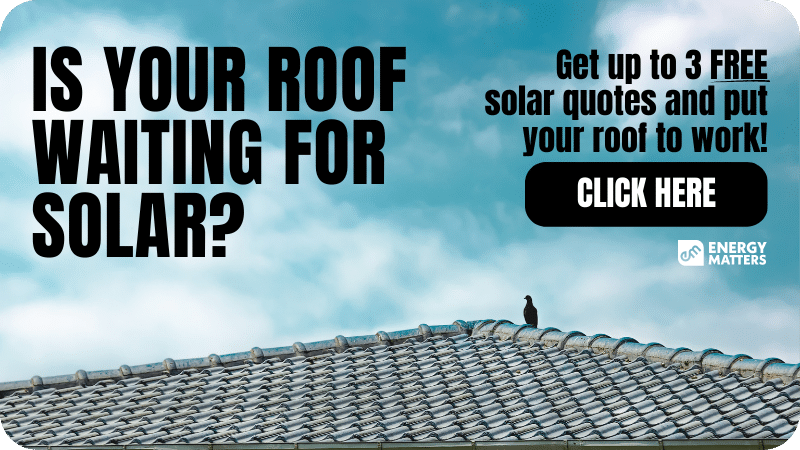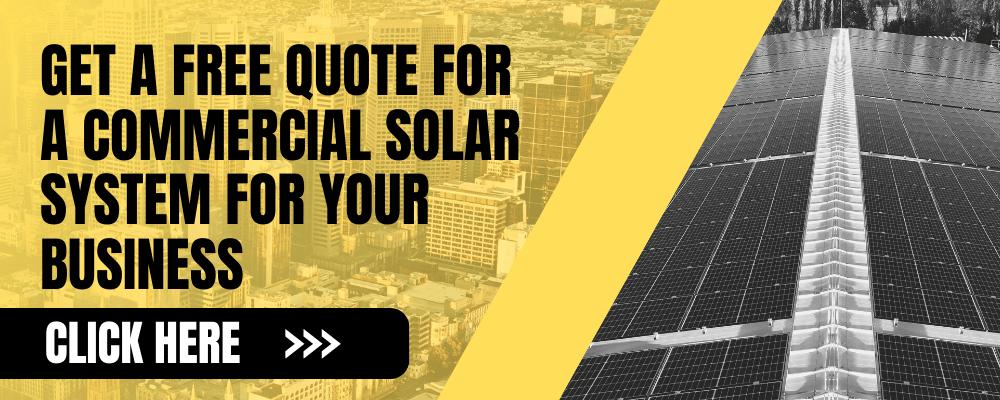On This Page
The Clean Energy Council (CEC) represents leading businesses operating in solar, wind and other renewables, along with more than 4,000 accredited solar installers.
Safety and quality have been a constant focus of the Clean Energy Council since its formation in 2007.
Solar panels have been featured on the rooftops of houses and other buildings in Australia since the Seventies. As of June 2016, there were more than 1.5 million rooftop solar systems installations right across Australia, safely and reliably delivering clean electricity to homes and businesses.
According to the Clean Energy Australia Report posted on 01 April 2022, renewable energy provided 32.5 per cent of Australia’s electricity in 2021, which increased by over 5 percentage points compared to 2020.
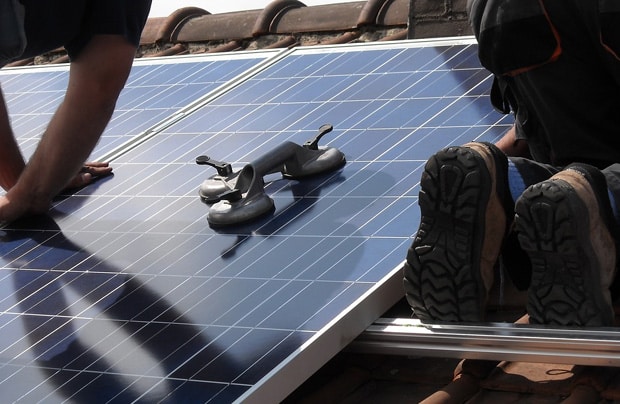
Using a Clean Energy Council Accredited installer means you are using qualified, authorised tradespeople. Image: Pixabay
The Clean Energy Council promotes awareness and thought leadership for clean energy businesses in Australia. It also regulates the services provided by renewable energy related businesses through a system of endorsement and accreditation.
What and how does the CEC do?
The Clean Energy Council has several key functions, including
Industry advocacy: The CEC represents its members’ interests to the government, industry bodies, and other stakeholders. It advocates for policies that support the growth of renewable energy and energy efficiencies, such as funding for research and development, investment in infrastructure, and regulatory frameworks that encourage clean energy use.
Accreditation and certification: The CEC provides accreditation and certification for individuals and companies in the clean energy sector. This includes accreditation for solar and battery installers, as well as certification for products and systems that meet industry standards.
Industry events and education: The CEC hosts industry events and provides education and training programs for its members. This includes workshops, seminars, and conferences that cover topics such as industry developments, technological advancements, and policy changes.
Research and analysis: The CEC conducts research and analysis on industry trends, policy developments, and technological advancements. It publishes reports and analyses on these topics, providing insights and recommendations for its members.
The CEC has three categories of endorsement covering individual installers, solar PV retailers and other businesses.
- Clean Energy Council Membership
- CEC Approval has been replaced by New Energy Tech Approval
- CEC Accreditation
In this article, we examine these categories and what they mean for Australians looking to install solar power systems in their homes or businesses.
Clean Energy Council (CEC) Membership
The first category, Clean Energy Council Membership, is for businesses only. Becoming a member helps the CEC advocate for an effective policy and market framework for clean energy while promoting the industry and its achievements.
CEC membership is open to any business that has an interest in renewable energy and energy efficiency in Australia.
Companies from all industries – not just solar – can become members. As a CEC member:
- The member’s industry can be better represented in important clean energy industry discussions;
- The CEC can better support all businesses that rely on effective renewable energy policies within all levels of government;
- The CEC can provide you with communications to help you learn more about how the clean energy industry works in Australia; and
- The member’s business will be well placed to benefit from the growing renewable energy industry in Australia.
There are five categories of CEC membership, with annual fees ranging from $690 to $66,000 The membership categories are:
- Associate
- Corporate
- Sponsoring
- Network
- Emerging tech
- Professional services
The first four categories apply to installation and retail businesses. Associate members pay an annual fee of $3,720. Corporate memberships are for businesses that want a greater affiliation with the CEC, including access to working groups. The annual fee is $19,150.
Sponsorship membership is for corporations wanting to fully align themselves with the Clean Energy Council. They have their branding on CEC materials and become members of the CEC Advisory Committee. The annual fee is $66,000.
Network memberships are for single entity businesses involved in solar PV installation. The annual fee is $690.
Professional services memberships are involved in key industry discussions, contributing to the growth and expansion of the industry. The annual fee is $10,000.
Note that the above prices are correct as of March 2023. For updated price information and updates on CEC Membership, including fees, click here.
CEC Approval
The Approved Solar Retailer program was replaced by the New Energy Tech Consumer Code (NETCC) program on 1 February 2023.
The Accredited Solar Retailer (ASR) program’s coverage of new energy techs products and services, such as solar PV, energy storage, EV charging, VPPs, and more, is expanded by the New Energy Tech Consumer Code (NETCC) program.
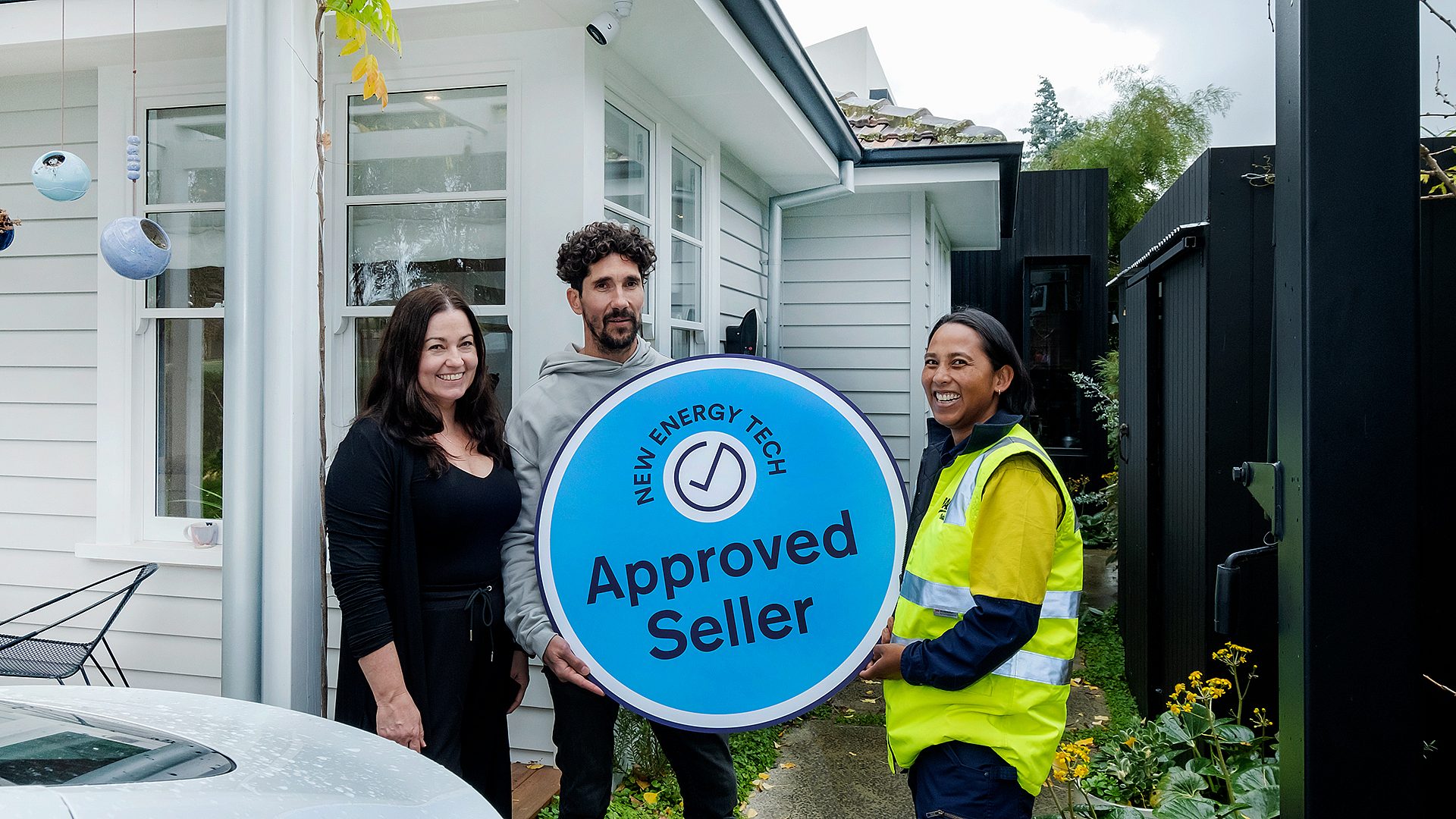
Already an Approved Solar Retailer?
All Approved Solar Retailers have now become New Energy Tech Approved Sellers.
How Approved Solar Retailer gets business NETCC-compliant?
Ensure that Approved Solar Retailers can access the Approved Sellers portal
Approved Solar Retailers can manage their profile and business information, including applications, renewals, and payments, through the Approved Seller portal. Also, ASR will have access to marketing materials and guidelines that you can share with their customers as well as a certificate as a New Energy Tech Approved Seller.
Make sure your company complies with the NETCC
There are important differences between the NETCC and the Solar Retailer Code of Conduct that the Approved Solar Retailer businesses must be aware of and incorporate into their practices and documents.
Applying to become a New Energy Tech Approved Seller
Make sure your business is eligible
To be eligible to become an Approved Seller, applicants must have been in operation in the new energy tech industry for a minimum period of 12 months and be selling to residential and small business customers. Your business will also be required to consent to business integrity checks by a third party.
If your business has been issued any rulings or warnings related to consumer protection, including by the Australian Competition and Consumer Commission (ACCC) or state-based consumer affairs agencies, these must be declared in the application and explained.
Read the NETCC and make sure your business is compliant
The most important thing to do is to read the New Energy Tech Consumer Code and ensure your business complies with each requirement of the Code. For some businesses, this may mean changing your business practices such as updating quotes or contract templates.
Prepare your application
You will need to make sure you have certain business documents ready to upload as part of the application:
- Customer contract, including terms and conditions
- Example site-specific performance estimate and installation design (if applicable)
- Complaints handling procedure
- Recent advertising material (if applicable)
These documents, should be filled-in as if provided to a consumer and will be assessed for their compliance with the NETCC.
Apply online and pay the application fee
The online application takes approximately 20 minutes to complete and you can save the form and return it at any time.
You will need to pay an application fee of $480 (excl. GST) when applying.
Annual Fees
Based on the total value of new energy tech products, systems and services a business has sold over the past 12 months.
| Tier 1 | ||
| Tier 2 | ||
| Tier 3 | ||
| Tier 4 | ||
| Tier 5 | ||
| Tier 6 |
Appeals fee
If your application to become an Approved Seller has been denied, you can appeal the decision here for a non-refundable fee of $750. If you are an Approved Seller appeals against a compliance determination do not incur a fee.
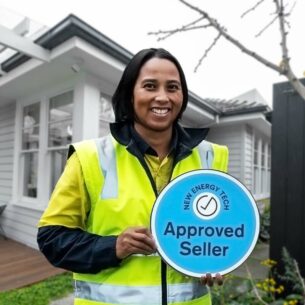
A business must meet the program’s eligibility requirements, demonstrate they meet the New Energy Tech Consumer Code (NETCC) standards, submit an application, and pay an annual fee to become a New Energy Tech Approved Seller.
CEC Accreditation
Unlike Memberships and Approvals, accreditation is only available to individual installers and designers. There are now around 8,000 Clean Energy Council accredited installers in Australia.
It is important to note that to be eligible for a Small-scale Technology Certificate (STC), which reduces the upfront cost of installing a solar PV system, the system must be designed and installed by a CEC accredited technician.
However, the advantages of using a Clean Energy Council Accredited installer go beyond their eligibility to apply for government rebates on the customers’ behalf.
As a professional organisation, the CEC stipulates and monitors the qualifications and ongoing learning requirements of accredited installers.
Accredited installers and designers list on the Clean Energy Council website. We urge customers to check the accreditation of their installer/designer.
The CEC gives accreditation to the qualified solar installer who comes to your home to install your solar system, not the solar PV retailer for whom they are working.
Customers need to get back in contact with the solar PV retailer if they discover that an installer is not on the CEC Accredited list.
Rigorous application process for accreditation
To become a CEC Accredited installer, applicants must go through a rigorous procedure, as outlined below.
1.Complete the required training through a Registered Training Organisation (RTO)
The duration and content of the training depend on past experience and qualifications. For example, the installer may have worked in a related industry or as an electrician
2. Once you have completed your training, you can apply to become accredited. To do this you must submit copies of your:
- training certificates
- public liability insurance (at least $5 million)
- electrical licence (if applying for any install accreditation)
- working safely at heights certificate completed within six years – check required units (if applying for grid-connect install or SPS install).
3. To demonstrate your knowledge you have 30 days to complete the assigned online assessments.
Once the online assessments have been completed you will receive your accreditation number and can begin working as a CEC-accredited designer or installer.
If you have applied for design-only accreditation, you have now completed your required assessments. You don’t need to complete a practical assessment. You can go to step 5.
4. If you hold Design and Install or Install Only provisional accreditation, you must complete a practical assessment before your three-month provisional accreditation expires. This is to demonstrate competency in installing solar or battery systems and will require you to submit documentation showing one of your first solar and/or battery installations.
5. If you hold Design Only provisional accreditation, once you have completed your online assessments, you can submit your upgrade application and payment to become fully accredited.
If you hold Design and Install or Install Only provisional accreditation, once you have completed your online and practical assessments, submit your practical assessment documents, upgrade your application and pay to become fully accredited. Your practical assessment will be sent to our technical team to review. Once it is approved you will become fully accredited.
6. Your full accreditation lasts one year and must be renewed annually, via continuous professional development.
In order to renew you will be required to complete 100 points of eligible training, which is split into two categories, Core and Elective. This is to ensure installers keep up-to-date with changes in the industry, and that accredited installers have all the information required to comply with the necessary standards.
7. Once you’ve got your full accreditation, if you want to design or install other types of systems, you can add these to your accreditation. Find out more about types of additional accreditation.
When you add new accreditation types you will be provisionally accredited for three months and must complete the associated assessments for that accreditation.
Energy Matters has been a leader in the renewable energy industry since 2005 and has helped over 40,000 Australian households in their journey to energy independence.
Let us discuss and choose the best quote that suits your needs and budget, and we can connect you with our trusted local solar installers in Brisbane, who will provide up to 3 FREE quotes for your home and business solar energy system. Get your free quotes today!
CEC apply for accreditation
Once you’ve completed the required training, you can submit an application to be provisionally accredited.
To apply you must complete the online application form. The cost for this application is $165 + GST. You will be asked to make this payment as part of the online application process.
You can only apply for provisional accreditation once in 12 months.
In completing this form you will be asked for:
- Certificate of Currency/Proof of Public Liability Insurance cover (minimum of $5 million coverage)
- record of successful completion of all required training units
- copy of the current unrestricted Australian/New Zealand Electrical Licence (for any install accreditation applications)
- proof of current Working Safely at Heights certification – check required units (for install accreditation applications only)
Once your application and payment have been received, the approval process usually takes five working days. Once your application has been approved you will have 30 days to complete your online assessments.
Australian Standards
In addition to training, CEC Accredited installers must adhere to Australian Standards. The three main standards are:
- AS 4509 Stand-alone power systems
- AS 4086 Secondary batteries for SPS
- AS/NZS 5033 Installation of photovoltaic (PV) arrays
Other relevant standards include:
- AS/NZS 3000 Electrical Wiring Rules
- AS 4777 Grid Connections of Energy Systems via Inverters
- AS 1768 Lightning Protection
- AS/NZS 1170.2 Wind Loads
It is essential that Clean Energy Council accredited installers adhere to the current and relevant standards for the design and installation of solar and battery storage systems.
CEC accreditation guidelines
To assist CEC-accredited installers and designers in interpreting the relevant Australian Standards when installing and designing solar and battery storage systems to the highest standard, the Clean Energy Council produces design and installation guidelines.
The guidelines set requirements that must be followed by CEC-accredited installers. They are not the ultimate set of rules and must be read with all relevant Australian standards.
The guidelines contain practical design and installation information and your responsibilities to those you work with and your customers.
CEC-accredited installers and designers and CEC members can log in to their accounts to download copies of the guidelines.
CEC approved products
Accredited persons and retailers should always refer to the lists before performing an installation. The lists are dynamic and products can be de-listed at any given time if found in breach of the Clean Energy Council’s Product Listing Terms and Conditions or voluntarily removed at the request of the manufacturer for products that are not actively imported.
Only systems with products from the approved lists are eligible to receive small-scale technology certificates (STCs) under the Small-scale Renewable Energy Scheme (SRES).
Use the CEC tool to locate a Clean Energy Council accredited installer near to you if you’re looking for a local solar installer to install or service your solar or battery storage system.
Switching to a better plan?
You may already have an energy plan but want to shop for a better deal. If you’re looking to save money on your electricity and gas bills, Energy Matters can help using our “Energy Health Check”!
Energy Matters’ “Energy Health Check” is a cutting-edge energy comparator tool that allows you to compare your area’s most competitive retail offers. We collect the data from our wide range of trusted retailers, allowing you to decide about changing your plan.
If your goal is to minimise the cost of your gas and electricity bills, switch to a better plan now!








